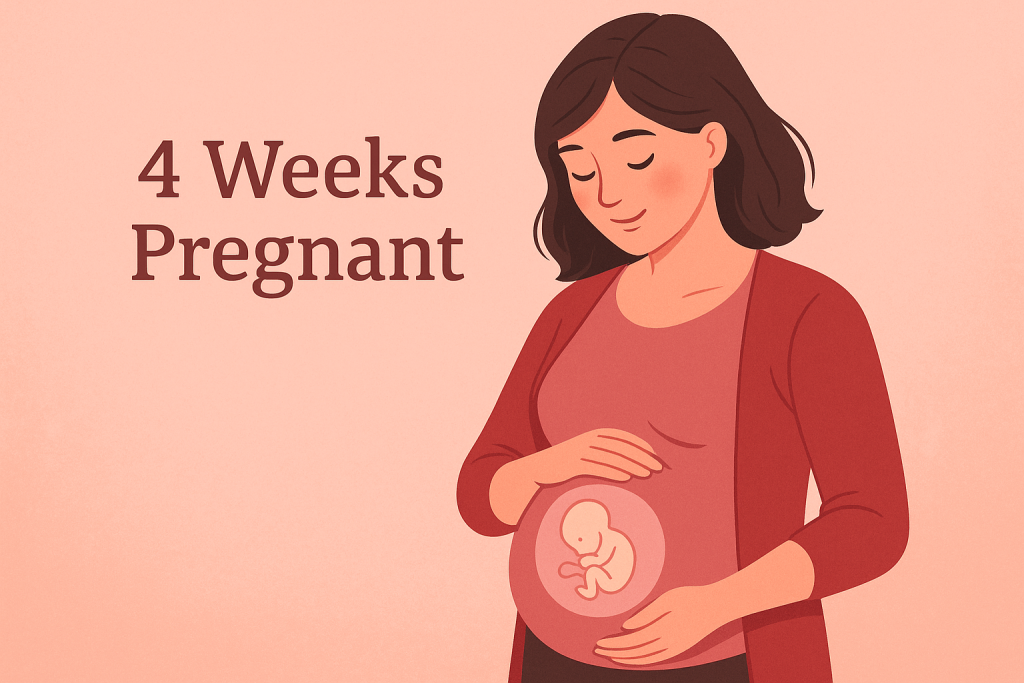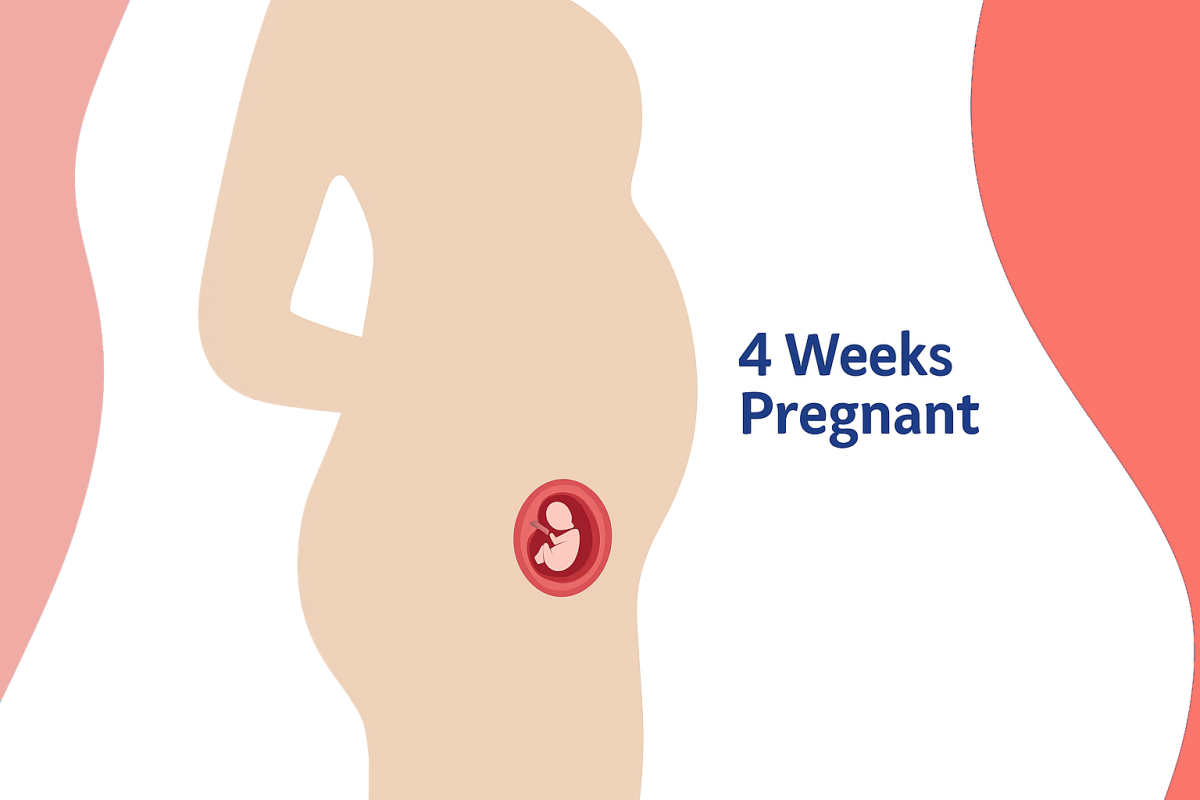At 4 weeks pregnant, many people are just beginning to suspect they might be expecting. This is a remarkable stage of pregnancy — although your baby is still tiny, crucial developments are already underway. Let’s explore what’s happening inside your body, common signs, and how you can support a healthy pregnancy from this early stage.

📌 How Pregnancy is Calculated
Doctors and midwives (including those at ACOG and NHS) calculate pregnancy from the first day of your last menstrual period (LMP). This means at 4 weeks pregnant, conception likely occurred about two weeks ago. That’s because ovulation and fertilization generally happen around week 2 of this count.
👉 Reference: The NHS explains this method helps provide a consistent timeline for monitoring fetal growth and development.
👶 Baby’s Development at 4 weeks pregnant
Your baby, now called an embryo, is in the early stages of growth. According to the Mayo Clinic, the embryo at this stage is about the size of a poppy seed — around 1 mm long. The key developments include:
✅ The amniotic sac begins to form, providing a protective cushion.
✅ The yolk sac appears, temporarily nourishing the embryo.
✅ The placenta starts forming, preparing to take over the nourishment role.
✅ The cells that will become the baby’s brain and spinal cord (the neural tube) begin developing.
👉 Reference: The WHO highlights that the neural tube forms very early, which is why taking folic acid is essential — it helps prevent neural tube defects like spina bifida.
🤰 What’s Happening in Your Body
Even though your baby is tiny, your body is hard at work supporting this new life. Some changes include:
🌸 Rising levels of human chorionic gonadotropin (hCG) — this is the hormone detected by pregnancy tests.
🌸 Increased progesterone and estrogen, supporting the uterine lining and preventing further ovulation.
🌸 Formation of new blood vessels to supply the embryo with oxygen and nutrients.
👉 Reference: ACOG states that these hormonal changes are key to maintaining a healthy pregnancy and supporting the placenta’s development.
🌟 Common Symptoms at 4 weeks pregnant
While not everyone experiences noticeable symptoms this early, many report:
✔ Missed period (the first obvious sign)
✔ Fatigue — caused by rising progesterone
✔ Sore or swollen breasts
✔ Light spotting (implantation bleeding)
✔ Mood swings
✔ Mild cramping
✔ Frequent urination
👉 Tip: The NHS advises that if you experience severe pain or heavy bleeding, seek medical advice immediately.
📝 Tips for a Healthy Pregnancy at Week 4
💊 Start prenatal vitamins: The WHO recommends at least 400 micrograms of folic acid daily to reduce neural tube defect risk.
🍎 Eat well: Include plenty of fruits, vegetables, whole grains, and lean proteins.
🚫 Avoid harmful substances: Alcohol, smoking, and excessive caffeine should be avoided — the Mayo Clinic notes these can increase the risk of miscarriage or fetal development problems.
📅 Book your first prenatal appointment: Most healthcare providers want to see you by 8–10 weeks, but early booking ensures you get advice and screening as needed.
🔗 Related Posts
- Pregnancy Week 1: The Journey Begins
- Pregnancy Week 2 symptoms: Ovulation, Fertility
- Pregnancy Week 3: The Journey Begins – What’s Happening Now?
- How Pregnancy is Calculated: Why Week 1 Starts Before Conception
❓FAQs About Being 4 Weeks Pregnant
Yes. Most home pregnancy tests can detect hCG levels by week 4. For accurate results, test a few days after your missed period using the first urine of the day.
Light spotting (known as implantation bleeding) can be normal. However, if it’s heavy or accompanied by severe cramping, seek medical attention to rule out complications like ectopic pregnancy.
Avoid:
– Alcohol
– Smoking
– Recreational drugs
– Unwashed produce
– Raw or undercooked meat and fish
– High-mercury seafood (e.g., swordfish)
Your baby is 1–2 mm, about the size of a poppy seed. Though small, critical systems like the neural tube and placenta are forming.
Book your first appointment around 8–10 weeks, but call earlier if:
– You have a history of miscarriage or complications
– You experience severe pain or bleeding
– You’re on medications that may affect pregnancy
Not necessarily! Many people begin to feel fatigue, breast tenderness, or mood changes as early as week 4 due to rising hormone levels.
🌐 References
- American College of Obstetricians and Gynecologists (ACOG)
- Mayo Clinic
- World Health Organization (WHO)
- NHS

Leave a Comment